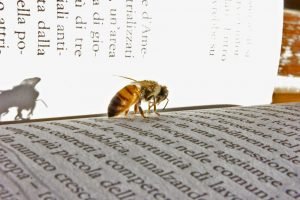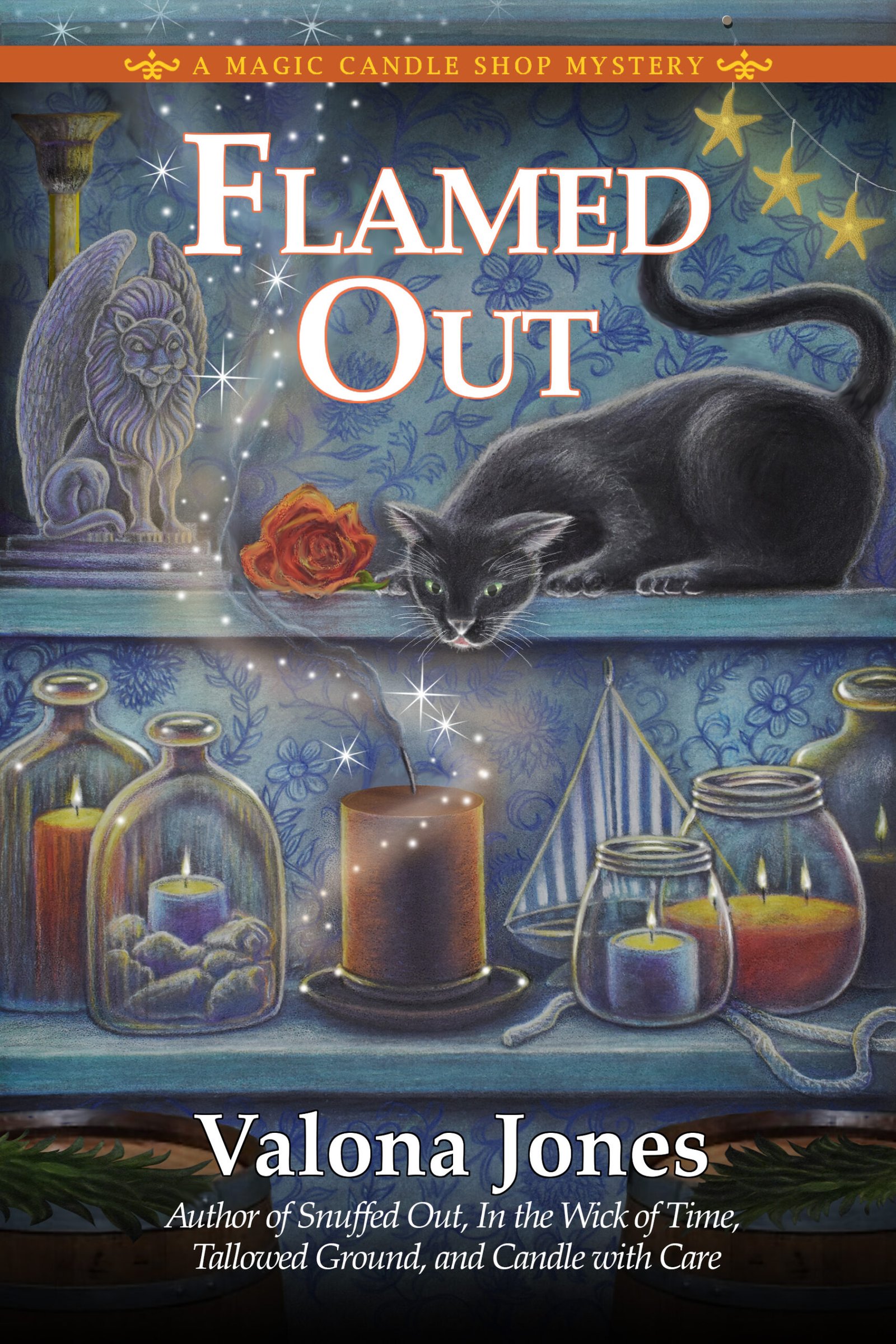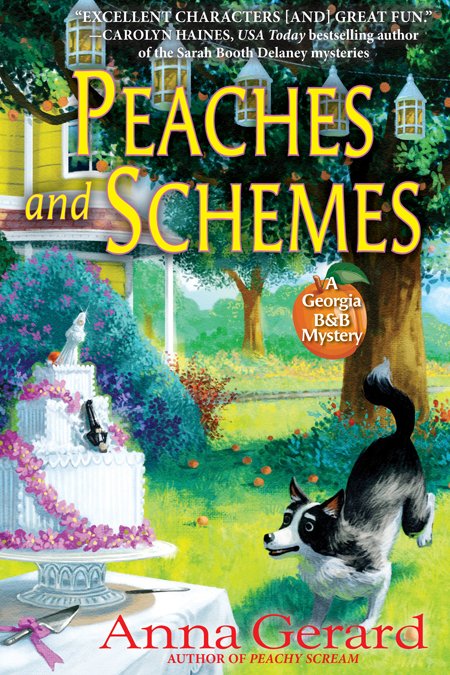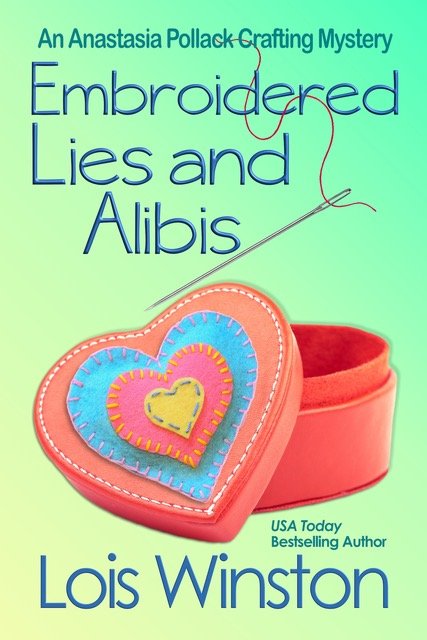Let's Talk with Diane A.S. Stuckart
On Bee’ing an Author…
 If you’ve hung out with writers long enough, you know the terms “plotter” and “pantser” when it comes to crafting fiction. The plotter is an author who writes a full outline of each book in advance of starting it, mapping out each scene and character interaction and red herring from page one to the end. Then you have the pantser, who simply dives right in and starts writing, with characters and plot twists popping up spontaneously. Both camps are sure theirs is the better way to write a novel, and there’s no convincing them otherwise.
If you’ve hung out with writers long enough, you know the terms “plotter” and “pantser” when it comes to crafting fiction. The plotter is an author who writes a full outline of each book in advance of starting it, mapping out each scene and character interaction and red herring from page one to the end. Then you have the pantser, who simply dives right in and starts writing, with characters and plot twists popping up spontaneously. Both camps are sure theirs is the better way to write a novel, and there’s no convincing them otherwise.
Which brings us to the subject of bees.
 Those of you who have checked out my website bio might know that my husband and I raise honey bees. We’re very small scale – the most hives we’ve ever had at a time is six – and for us it’s a fun hobby that gets us outdoors and connecting with nature. But we found out early on in the process that, as with writing, there’s more than one way to keep bees. And, as with writing, every beekeeper thinks their way of caring for honey bees is the best.
Those of you who have checked out my website bio might know that my husband and I raise honey bees. We’re very small scale – the most hives we’ve ever had at a time is six – and for us it’s a fun hobby that gets us outdoors and connecting with nature. But we found out early on in the process that, as with writing, there’s more than one way to keep bees. And, as with writing, every beekeeper thinks their way of caring for honey bees is the best.
Some beekeepers—mostly the commercial folks, and those who have been mentored under them—are big on chemically treating their hives against invasive pests. This means using various vapors and chemical strips in the hives to prevent or kill mites, beetles, and moths. They give their bees supplemental food rather than depending on the bees gathering sufficient nectar on their own. They check their hives on a regular basis, keeping records on their condition. This works for these folks because the bees and their honey are not a hobby but products and a business.
 On the other hand, many small scale or hobbyist beekeepers take a more holistic approach. No chemicals for them. They rely on cleanliness and good bee genetics, as well as non-intrusive techniques like oil traps to capture errant beetles. And they don’t open the hives very often, counting on the bees to handle their own business. These techniques work for those beekeepers because they have the time and inclination to keep their human “footprint” on the hive as faint as possible.
On the other hand, many small scale or hobbyist beekeepers take a more holistic approach. No chemicals for them. They rely on cleanliness and good bee genetics, as well as non-intrusive techniques like oil traps to capture errant beetles. And they don’t open the hives very often, counting on the bees to handle their own business. These techniques work for those beekeepers because they have the time and inclination to keep their human “footprint” on the hive as faint as possible.
Both bee groups—the chemical folks and the holistic people—claim theirs is the right way…nay, the only way. Sound familiar?
Bottom line is that, for any endeavor, there’s more than one way to reach a goal, be it raising healthy honey bees or writing a bestseller or something totally different. But sometimes we get so hung up in the “how” of what we’re doing that we forget the more important “why” we took on that mission in the first place. Has this ever happened to you?
And, if you’re in South Florida and want to learn about honey bees, why not join me at the South Florida Honey Bee Expo taking place Sept 30-Oct 1 in Loxahatchee Groves: https://www.eventbrite.com/e/south-florida-honey-bee-expo-2022-tickets-373913303757
Posted in Let's Talk, with Diane A.S. Stuckart • Tags: Diane A S Stuckart, Let's Talk, On Bee'ing an Author | 8 Comments







Hi Diane, I didn’t know you were following in the footsteps of Sherlock in keeping bees! I’d love that, but we live in a condo now. Luckily, there is a small garden across the street with about a dozen hives. The beekeeper stops by about once a week and checks on them. He seems pretty hands-off and only opens one or two hives at a time. Have fun — what a wonderful hobby.
We got into bees quite by accident when they built a huge hive in our shed. I find them very mediative to watch and listen to…they have their world figured out and do what needs to be done.
I prefer to stay away from bees, thank you. Also hornets and wasps. The last time I got stung by something I needed three different meds to reduce the redness and swelling on my skin. As for being a plotter or a pantser, at this stage I am both. Generally, I know who the suspects are before I start writing a mystery, but then things can develop more organically as the writing moves along.
We do keep a large supply of Benadryl in case of stings. Hot water or a hot wet washcloth on the sting break down the enzymes. Bees rarely go after you unless they feel threatened. Though hornets and wasps really are the Devil! 🙂
Thanks for sharing this, Diane! I don’t think beekeeping would be for me, but we’ve just done a complete redesign on our front yard in an attempt to make it pollinator friendly. The great thing is, the plants are also drought tolerant, so we use less of that precious resource and help the hummingbirds, butterflies, and bees at the same time.
Terry, having a pollinator yard or garden is an awesome thing. Bees range quite a ways for pollen and nectar, so even if you have a lot of bee friendly plants and trees in your yard along with your hives, not all the bees hanging out in your flowers are “yours”. 🙂
Diane, I found your analogy between beekeepers and writers quite eye-opening. Thanks for the bee education!
You’re welcome, Lois. I think we’ll always find that any endeavor has at least two camps of thought as far as the “best” way to do whatever, and people tend to be pretty entrenched in their opinions. Of course, fence-straddling can be just as bad. Main thing is to always keep an open mind, right?